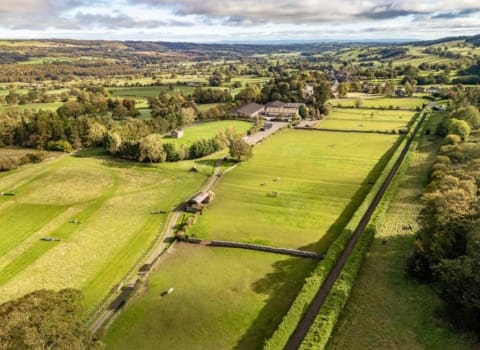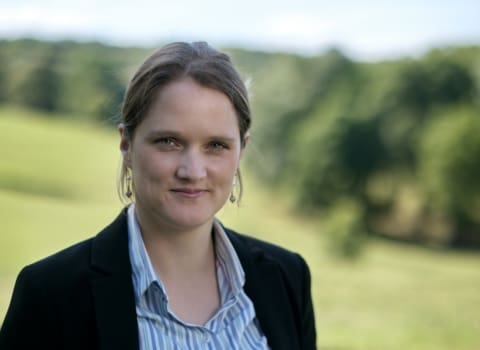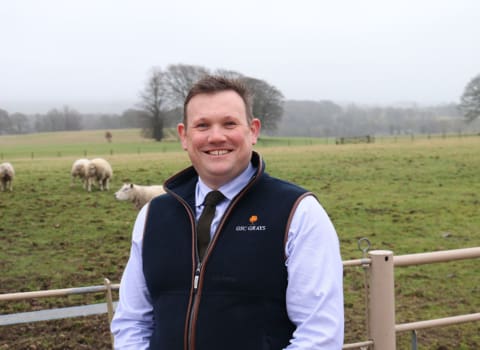Contact our offices
Main office
COLBURN
5 & 6 BAILEY COURT
COLBURN BUSINESS PARK
RICHMOND
NORTH YORKSHIRE
DL9 4QL
Estate Agency Offices are located in
BARNARD CASTLE, BOROUGHBRIDGE & RICHMOND
Residential Management Team
Our Offices
- Alnwick
01665 568310
Email Officealnwick@gscgrays.co.uk - Barnard Castle
01833 637000
Email Officebarnardcastle@gscgrays.co.uk - Boroughbridge
01423 590500
Email Officeboroughbridge@gscgrays.co.uk - Chester-Le-Street
0191 3039540
Email Officechester-le-street@gscgrays.co.uk - Colburn
01748 897630
Email Officecolburn@gscgrays.co.uk - Driffield
01377 337180
Email Officedriffield@gscgrays.co.uk - Hamsterley
01388 487000
Email Officehamsterley@gscgrays.co.uk - Hexham
01434 611565
Email Officehexham@gscgrays.co.uk - Kirkby Lonsdale
01524 880320
Email Officekirkbylonsdale@gscgrays.co.uk - Penrith
01768 597005
Email Officepenrith@gscgrays.co.uk
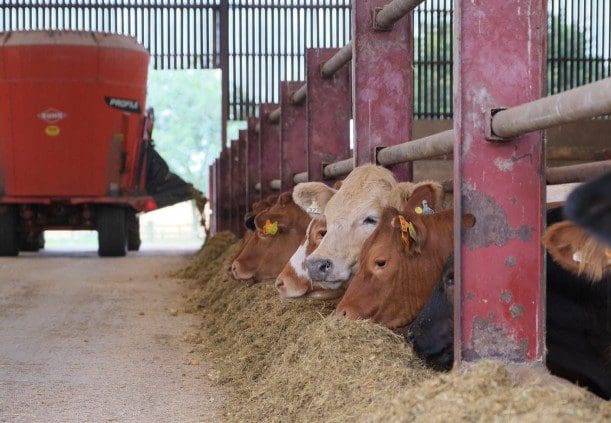
CARBON CAPTURE IN LIVESTOCK FARMING
Livestock production in the UK, alongside the wider land-based economy, will inevitably play an extensive role in tackling climate change and achieving ‘Net-Zero’ ambitions.
It is a unique sector in that it both sequesters carbon and releases it into the atmosphere. Therefore, through suitably managed farming systems and new technologies, the ability to enhance carbon capture can be achieved with the overall outcome to generate negative emissions, whereby carbon is actively removed from the atmosphere.
Climate change is one of the primary influences impacting all environmental systems on the planet that species depend upon to survive, evolve and thrive, therefore, knowing its effects and developing ways to prepare for its impacts are essential. From a livestock perspective, Net Zero carbon goals may be quite the challenge to achieve, as the industry has such a complex carbon footprint. This is due to considerably variable factors such as feed composition, growth rates, fertiliser inputs and use of fossil fuels.
Much focus for livestock farming businesses in recent months has been around achieving high levels of carbon capture in woodlands, soils, and hedgerows, as evident in the Sustainable Farming Incentive (SFI) standards. Nevertheless, targeting the reduction of emissions on-farm through increased productivity, use of bio-energies to store and capture carbon, and on-farm carbon storage, will be vital.
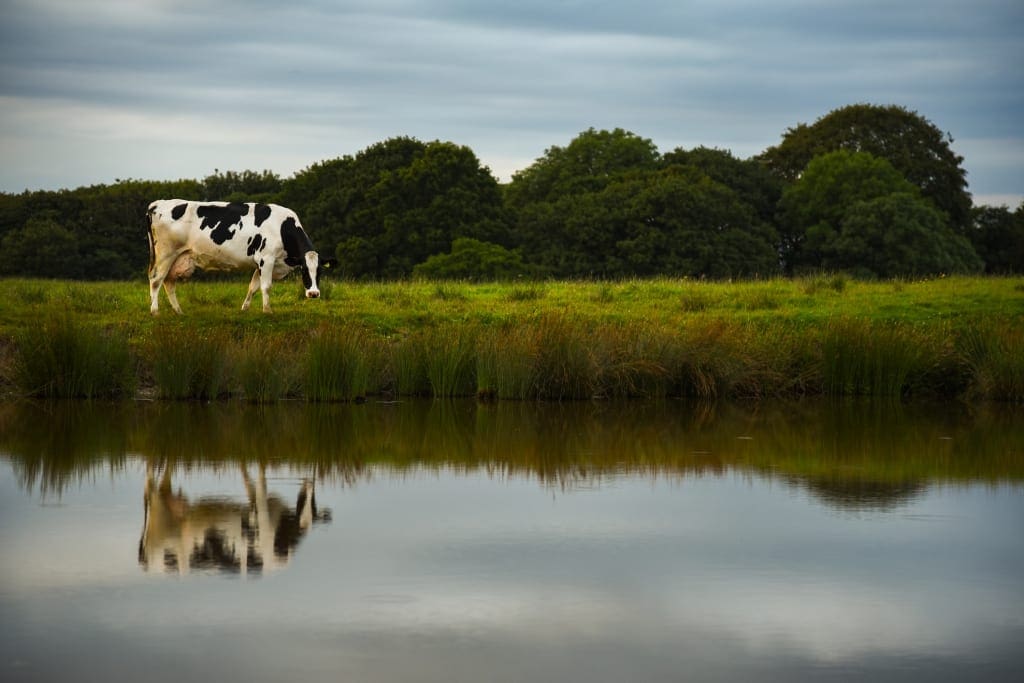
INCREASED PRODUCTIVITY
Livestock farmers can seek to improve farm productivity by evaluating inputs and considering how they can be used more efficiently, thus reducing emissions. Ways in which this can be achieved are outlined below.
- Energy efficiency – reducing electricity and fuel consumption on-farm.
- Converting by-products of production i.e., manure and forage crops into renewable energy through anaerobic digestion.
- Soil compaction prevention on grassland.
- Use of additives to feed to reduce methane emissions from beef and sheep.
- Precision farming methods such as variable rate technologies to reduce fertilizer and spray usage.
It is anticipated that to achieve the goals above, the Farming Investment Fund will offer suitable grant aid to implement these practices.
BIOENERGY
Increasing renewable energies to offset emissions from fossil fuels in agriculture will be a key element to attaining net zero. For example:
- Producing energy from organic matter to capture and store the carbon produced.
- Use of animal by-products, such as wool, for raw materials in housing developments.
For this to be achieved, it is noted that cross-industry collaboration and significant investment will be required, with partnerships built between producers, manufacturers, academics, and governments to achieve successful delivery on these ambitions.
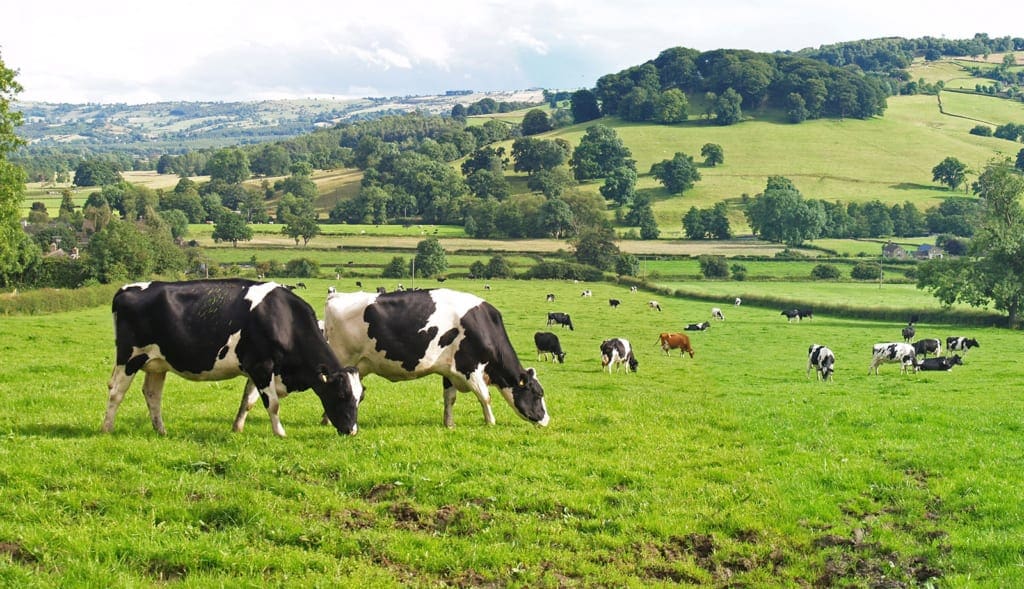
ON-FARM CARBON STORAGE
Conservation and restoration of farmland that already sequesters carbon is key to increasing carbon capture. Alongside the SFI standards, there are varying ways in which on-farm carbon storage can be improved:
- Woodland and shelter belt planting.
- Wetland restoration.
- Peatland restoration
It is recognised that significant funding schemes such as the Woodland Creation and Maintenance grant and Nature for Climate Peatland Grant Scheme will need to be maintained to deliver such projects, alongside Local Nature Recovery and Landscape Recovery aspects of ELM.
As new policy and grant funding look to deliver ‘public money for public goods,’ it is highly anticipated that measuring and recording changes to carbon levels on-farm will become more common over the coming years. Benchmarks will likely continue to be set, using predictive modelling, to understand the ‘expected outcomes’ of putting the management changes as outlined above into practice. Mechanisms of support and user-friendly recording tools and calculators are now becoming available to support livestock farming’s journey into the world of ‘Net-Zero,’ but continued investment into research and development will be essential.
It is therefore sincerely hoped that during the UK’s hosting of the United Nations Framework Convention for Climate Change Conference of Parties (COP26) in November 2021, that there will be a great opportunity for the UK Government to hasten the repurpose of subsidies to build resilience against climate change and achieving Net Zero targets.


